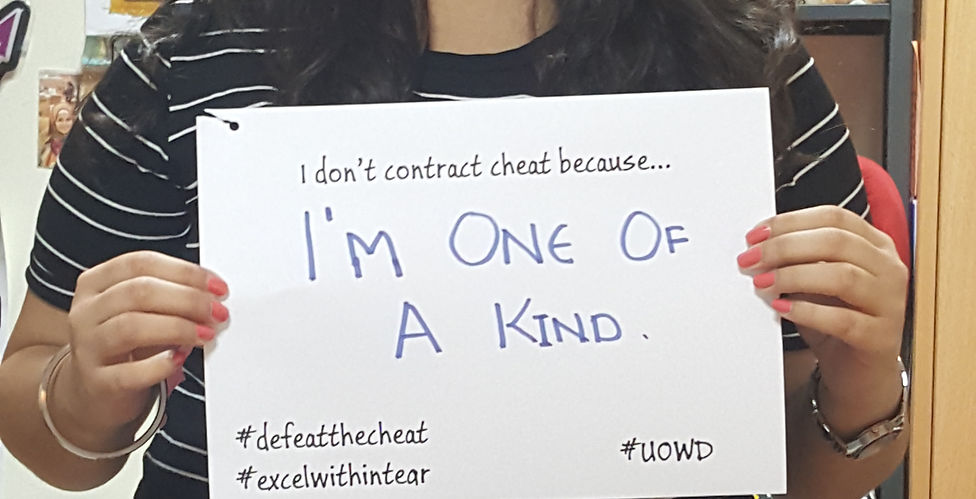
My Passion - Academic Integrity
Official book launch of the edited book "Integrity in Education for Future Happiness". The book was published by European Network for Academic Integrity from Mendel University Press (Czech Republic) and launched at the Sharjah International Book Fair, Expo Centre - Sharjah on 11 November 2021. The special guest unveiling the book was Ms Lyn Stainbridge from Sharjah Private Education Authority who hailed the efforts of the editors and authors in bringing together research on integrity in education, well being and future of student learning experiences.
In the age of virtual classrooms and remote assessments, one question has become increasingly relevant and challenging for educators and students alike: to cheat or not to cheat online? As an academic deeply immersed in the realm of cyber ethics and academic integrity, I've grappled with this question and the implications it holds for the future of education. Let's delve into why academic integrity has become my passion and why it's more important than ever, especially in our digital age.
The Cheating Conundrum: Online vs. Traditional
Firstly, it's crucial to dispel a common misconception: all students don't cheat and most students who do are not doing it with malicious intent! This might seem counterintuitive, but numerous studies have consistently supported this surprising truth.
The Impact of COVID-19: A Catalyst for Change
With the advent of COVID-19, the world underwent an unprecedented transformation. Lockdowns, social distancing, and remote learning became the new norm. For educators and students, the question of whether online exams would lead to increased cheating became a pressing concern. However, the reality is that cheating has always posed a significant threat to the quality of education, institutional reputation, and even the credibility of students themselves.
The International Perspective: A Matter of Trust
In international education, especially in emerging economies, students sometimes face skepticism about the quality of their education and ethical behavior. This skepticism is not entirely unfounded, as studies have shown that international students can be more vulnerable to academic dishonesty, further fueling concerns about the integrity of their credentials.
The Power of One: Be the Change
Now, you might be thinking, "Everyone cheats, so why should I be any different?" It's a valid question, but let's consider some powerful historical examples. Martin Luther King Jr., Mahatma Gandhi, and Prophet Mohammed (peace be upon him) were all individuals who, in their own ways, brought about profound change by standing up for what they believed in. Sometimes, it only takes one person to make a significant difference.
The Importance of Self-Belief
When you cheat, you inadvertently convey a lack of self-belief, doubting your own abilities and intellect. Numerous social experiments and studies have revealed the psychological impact of cheating on a student's psyche. You are the future, and it's crucial to nurture self-confidence, integrity, and ethics from the very beginning.
A Call to Action
As students, you are the architects of the future. Your education is not just about grades; it's about developing into responsible, ethical individuals who can shape society positively. Academic integrity is a cornerstone of this transformation.
Conclusion: Be the Change You Want to See
In conclusion, the decision to cheat or not to cheat online ultimately rests with each one of you. COVID-19 has presented challenges, but it has also offered an opportunity to prove your mettle, to show that you are better than the trend of dishonesty. Remember, you are part of the generation that can choose to be the change – to make history, to be better.
I believe in the power of education to transform lives and society for the better, and I'm committed to nurturing a culture of integrity in academia and beyond. Join me in this journey to make a difference and leave a lasting legacy.